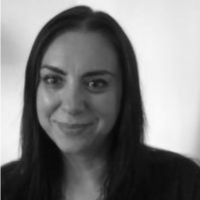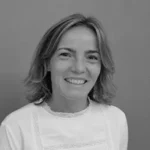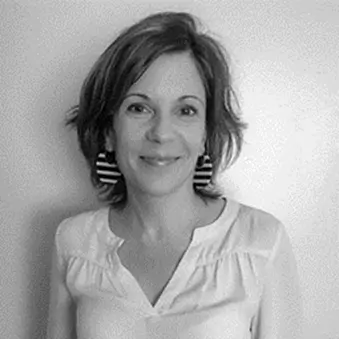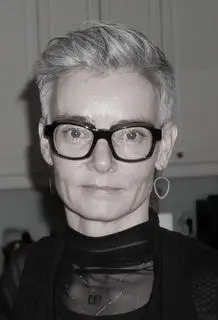Women in science: Dr Marie RUIZ
In honour of the International Day of Women and Girls in Science on February 11th, we will be sharing six interviews from COST Action researchers about their career experiences.
Women are still under-represented in research and innovation careers according to the European Commission’s She Figures 2021 report. Since 2003, the report monitors the level of progress towards gender equality in research and innovation in the European Union and beyond.
A significant gender gap persists at all levels of science, technology, engineering, and mathematics (STEM) disciplines despite the fact that women represent half of the world’s population.
To mark the International Day of Women and Girls in Science, COST interviewed women in key leadership positions within their COST Action network. What are their experiences, the challenges they have faced during their respective career? Why it matters to talk about women in science for the next generations. What message they would give to young women scientists in 2022.
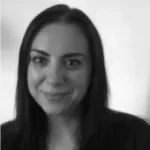
Dr Marie RUIZ chairs the Women on the Move COST Action
Dr Marie Ruiz is associate professor in British history at the Université de Picardie Jules Verne, Amiens, France. She holds a PhD in British History from the Université Sorbonne-Paris Cité. Marie Ruiz is a Fellow of the Royal Historical Society, FRHistS; Bibliographical Society of Canada’s 2021 Tremaine Fellow; and was 2019 Eccles Centre Visiting Fellow at the British Library.
My research focuses on gender and migration history with special attention to nineteenth-century British women’s emigration societies. Marie is the author of British Female Emigration Societies and the New World, 1860–1914 (Palgrave Macmillan, 2017). She is series editor of Anthem Studies in British History and co-editor of the Manchester University Press series Women on the Move.
What made you choose to become a scientist and determine your discipline, field of research?
My personal history has certainly drawn me to the field of research I work in today. Indeed, I was attracted to the study of migration as a student in Britain, surrounded by expats from the former British Empire. At the time, I was researching the history of Europe and Ireland for my master’s dissertation. This is when I understood that migration history was a personal passion, and I would become a migration scholar. As the daughter of two migrants (from Spain and Morocco), I felt the personal need to understand human migration, its rationales, the structural forces beyond the decisions to migrate, the everyday life experiences of migration, individual and group processes and so on. Already as a young adult, the questions I was asking myself about migration were endless. The gender dimension only came in later as my initial objective was to study men and women in parallel, but British women’s emigration societies were a perfect ground in which to examine the combination of gender and migration patterns and to introduce me to gender studies in migration history for my PhD. My new research project combines the history of men and women migrants, their education and preparation to migrate in a gender-inclusive approach, which echoes my initial endeavour.
Do you have a role model that led you to become a scientist?
I have been greatly inspired by two colleagues. Historian Eric Richards has certainly been a role model for me. Impressively talented, humble, and always gentle, he generously helped and supported early career scholars. He kindly accepted to write a note for the blurb of my first monograph and then a chapter for my first edited volume, while we didn’t know each other. We then met for the first time in Paris, and I was impressed by his human and academic qualities, which are to me what makes an exceptional scholar. We co-organised a conference in France in 2018, and he passed away a week after that event. I decided to edit an “In Memoriam” volume in his honour, which was a cathartic experience for all of the friends and colleagues from his last conference. Among the conference guests was another scholar who has impressed me, James Hammerton, whose work on women’s emigration societies has been extremely inspirational for me. We met in Australia when I was researching my PhD, and he too shared his knowledge with endless generosity and even read my complete manuscript before its publication, with such insight that he added to the quality to the book. I am greatly indebted to James Hammerton for his support and encouragement. A commanding figure in migration studies, I was lucky enough to have benefitted from his guidance and expertise. Masterful, humble, and gentle scholars, these colleagues have been role models for me, and I aspire to follow their example. Endlessly sharing their knowledge and experience with others, they inspire nothing but respect and esteem.
Did you meet barriers during your career as a woman scientist?
I have evolved in a very feminine environment as a researcher in humanities in France, so I don’t feel that I have experienced many barriers as a woman scholar, but I regret that this field does not include more men. I haven’t yet reached the level of full professorship which is commonly described with a higher proportion of men, so an equal representation of men and women at all levels should be our objective.
Why do you think we are still having to talk about women in science?
Science was for a long time a male stronghold associated with socially constructed defining components of masculinity. Women have had to make their way into science despite gender barriers. This separation of fields touches upon gender identities and is deeply rooted in gender social relationships with structural forces maintaining hierarchical patterns between men and women.
“Emphasizing women’s visibility in science is a natural phenomenon and a necessary step to reach equality.“
Women’s presence and contribution in a field in which they have been overlooked must first be acknowledged and underlined to head towards a natural inclusion of women on the side of men in science: this is to me a necessary process. Nobody questions the presence of women in the care sector, yet men are little represented in the care economy and may still represent an anomaly in a deeply feminine field. Deconstructing gender barriers will take time and will only be possible when overcoming sexual differences to consider women’s and men’s individualities on common grounds.
What are the current challenges for women in science? What is the key to success in a career in science?
The current challenges concern reaching the highest spheres in the scientific field. Women today do have access to science and related fields, yet they might be prevented from reaching top positions on account of surviving preconceived ideas about gender roles, and also because maternity still too often isolates women from their career goals, although evolutions and improvements are clear with for instance increasing paternity leaves and more balanced sharing of gender roles in today’s family homes.
What would be your predictions in your field of research?
In the field of migration history, a lot has been achieved to reveal the presence and participation of women migrants in individual mobility processes, yet we are still at this intermediary stage when women and men are too often studied separately. I feel that a necessary evolution would be to stop considering gender studies as the study of women only, and work on women and men in gender-inclusive approaches, which would give a more reliable perspective on the construction of gender. What is also slowly developing is the study of non-binarity in migration processes, a late and necessary improvement to consider all individualities.
What message would you give to young women scientists?
I would advise them to follow their dreams because there are always solutions to overcome barriers. Engage in your career as an individual with the same chances of success as all others. Work with passion and enjoy every moment of what you are doing, this is what will lead you to reach your goals.
Read more interviews
Further Reading
